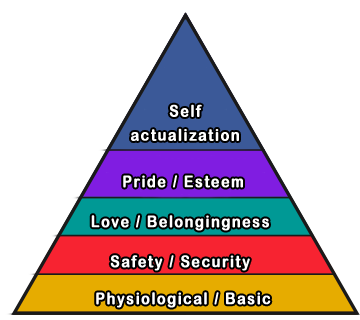Preservation Strategy – Chapter 1
Posted by Blu-ray Duplication Admin |
0 |
Jan
Video Transfer Preservation Strategy Blog
In this series of blogs we would cover various aspects and considerations for your memories and family history and legacy preservation strategies.
Chapter 1 – Why is preservation important?
Today we are living at the age of information and the age of technology. On one hand we have today the means to not only easily document our lives and our family lives with the aid of various digital SLR, flip and phone cameras, but we can also easily edit, transfer the video to computer or transfer our recorded video to DVD, and if this is not enough, we can easily share and distribute it across the internet in a matter of seconds.
While al this is available and accessible to us, older technology, such as analog based media (VHS, Betamax, Video 8mm, Hi8 Video), digital tape based media (MiniDV, DVCAM, HDV, Digital 8), optical based media (8mm, super 8mm, 16mm, negatives, slides), audio recordings (vinyl, audio cassettes, DATs), print media (photos, documents) and even laser based media (DVD, CD) – are all slowly withering away not only from our collective awareness, but also from our homes. Once abundant, VCRs can hardly longer be found and new equipment is no longer being manufactured. Some computers today are being sold without DVD trays, and some experts say that computers as we know them – desktops and laptops will gradually disappear from the scene and be replaced with tablets-based computers and cloud-based computing. That spells the end of tangible, physical media.
Now, let’s look at a theory that was proposed by Abraham Maslow in 1943, called “Maslow’s hierarchy of needsâ€. Maslow, a psychology professor, studied exceptional individuals such as Albert Einstein, Eleanor Roosevelt and many others, and have developed a very interesting theory that is still in use today in various disciplines from marketing to business to development psychology.
Without getting heavy into the theory and going off topic, Maslow proposes that all or most humans have 5 basic needs, which we all seek to meet and fulfill on a sliding scale. The bottom of the pyramid is the most fundamental, and includes our physiological and most basic needs, such as food, water, sleep, breathing etc. Once these needs are fulfilled, we concentrate on the next level, which is safety and security – shelter, job, resources, health etc.
We would like to focus on the next three levels of our needs – love & belongingness, pride & esteem and self-actualization.
Love & belongingness covers friendships, family and overall being loved and feeling belonged to groups. That is why you will find so many groups, affiliations, clubs, societies, groups, teams etc.
Pride & esteem covers more complex needs, such as confidence, being respected, self-esteem and perception. An interesting distinction between the love & belongingness need to the pride & esteem need, is that if one lives on a block where owning a BMW or similar make car is the norm, he or she may simply choose to own that car merely to satisfy their “belong†need, while if one lives on a block where the average neighbor owns a Ford type car, owning a BMW will be more “pride†need based.
The last at the top, which typically becomes a priority once the other, lower needs have been met, is about self-actualization, such as creativity, living up to one’s potential, discovering the purpose of one’s life etc. Self-actualization is akin to a life project.
Ongoing research appears to validate the existence of these universal needs, although some dispute the exact needs and their hierarchy. Regardless of whether you tend to accept Maslow, believe in a different version or it is the first time you have heard of his theory, consider this – preserving your family history and legacy actually fulfills the 3 top needs in the pyramid:
Love & belongingness – the act of preservation with the intent of sharing old memories and moments that cannot be experienced anywhere else, but in watching them with loved ones, is a process of uniting and enhancing the level of intimacy and closeness in one’s family. Whether it is a trip abroad, your son first step or your mother’s birthday party, those memories are simply priceless and can evoke emotions that will mean the world to your close ones.
Pride & esteem – just imagine the admiration you will receive when your wife watches your first honeymoon, or when your son sees you graduating college. The fact that your friends and family can learn more about you and get to know you in much more depth, as well as for enabling them to do so, is sure to make you proud.
Self-actualization – preserving your family history, taking the action to do so and fulfilling on it, is a project that is larger than you personally, and that will enhance the lives of others, primarily your friends and family. On a larger scale the content and memories you will be preserving could have some historical significance and could be used as stock footage or as an inspiration to learn more about a certain era or time period. It can also be seen as legacy and ensuring that your impact in this world will carry forward.
All in all, we have covered why the act of video and media preservation, including video transfer to DVD and PC is more important than ever before, that old technologies are rapidly becoming obsolete and that the act of preserving your memories and family history actually satisfy the three top human needs.
We at Advanced Media have dedicated ourselves to the continuous act of family history preservation and we ask you to take the first step and contact us to see how we can help you come with the best strategy to preserve your media for generations to come.
Please call us at (323) 469 0707 or click here.







